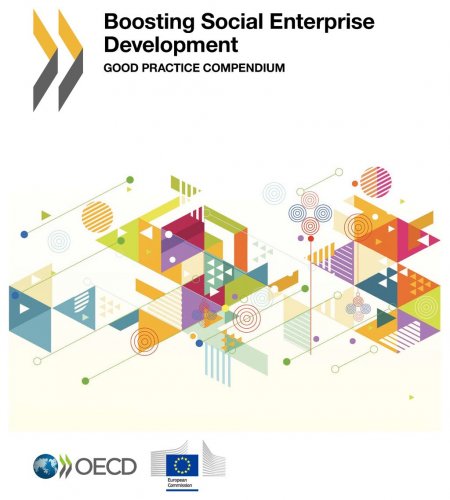Social enterprises are long-standing agents of inclusive growth and democratisation of the economic and social spheres, and they have proved resilient to economic adversity all the while addressing socio-economic challenges in innovative ways, re-integrating people back to the labour market, and contributing to overall social cohesion. This compendium derives policy lessons for boosting social enterprises from the analysis of 20 initiatives in several EU member-countries, covering a range of policy areas from legal frameworks, finance, market access, and support structures, to education and skills.
Download Boosting Social Enterprise Development: Good Practice Compedium
Key Messages
- Raise awareness and visibility of social enterprises, and tackle misconceptions
- Establish strategic and multi-stakeholder partnerships
- Foster viable and sustainable social enterprises
- Support risk-sharing mechanisms for finance providers
- Foster social-entrepreneurship skills in the education system
- Ensure institutional continuity and political support for social enterprises
Table of Contents
Acknowledgements
Executive summary
Chapter 1. Main trends in social enterprise development
Chapter 2. Social Innovation Factory: An early-stage business support structure, Belgium (Flanders)
Chapter 3. SAW-B: A training and advisory services federation, Belgium (Wallonia-Brussels)
Chapter 4. The National Strategy for the Development of Social Entrepreneurship, Croatia
Chapter 5. Copenhagen Project House (KPH): An incubator for social start-ups, Denmark
Chapter 6. Alter’Incub: A regional incubator, France
Chapter 7. The Law on the Social and Solidarity Economy (SSE), France
Chapter 8. Financing Agency for Social Entrepreneurship (FASE): An intermediary for hybrid financing, Germany
Chapter 9. PHINEO: A financial intermediary, Germany
Chapter 10. Clann Credo: A social finance provider, Ireland
Chapter 11. JEREMIE Sicily ESF Social Finance: A microfinance scheme, Italy
Chapter 12. Social Impact Factory: A business-support structure, Netherlands (the)
Chapter 13. ES Fund TISE: A loan fund, Poland
Chapter 14. Portugal Inovação Social: An integrated approach for social innovation, Portugal
Chapter 15. Barcelona City Council Decree for Socially Responsible Public Procurement
Chapter 16. El Hueco: A local incubator, Spain
Chapter 17. Big Potential: An investment readiness programme, United Kingdom
Chapter 18. The Partnership for Supporting the Social Enterprise Strategy, United Kingdom, Scotland
Chapter 19. Specialisterne & SAP: A partnership for access to markets, multiple countries/ Denmark
Chapter 20. Junior Achievement Europe: An education network, multiple countries
Chapter 21. NESsT: A multipronged support structure, multiple countries
Tables
Figures





